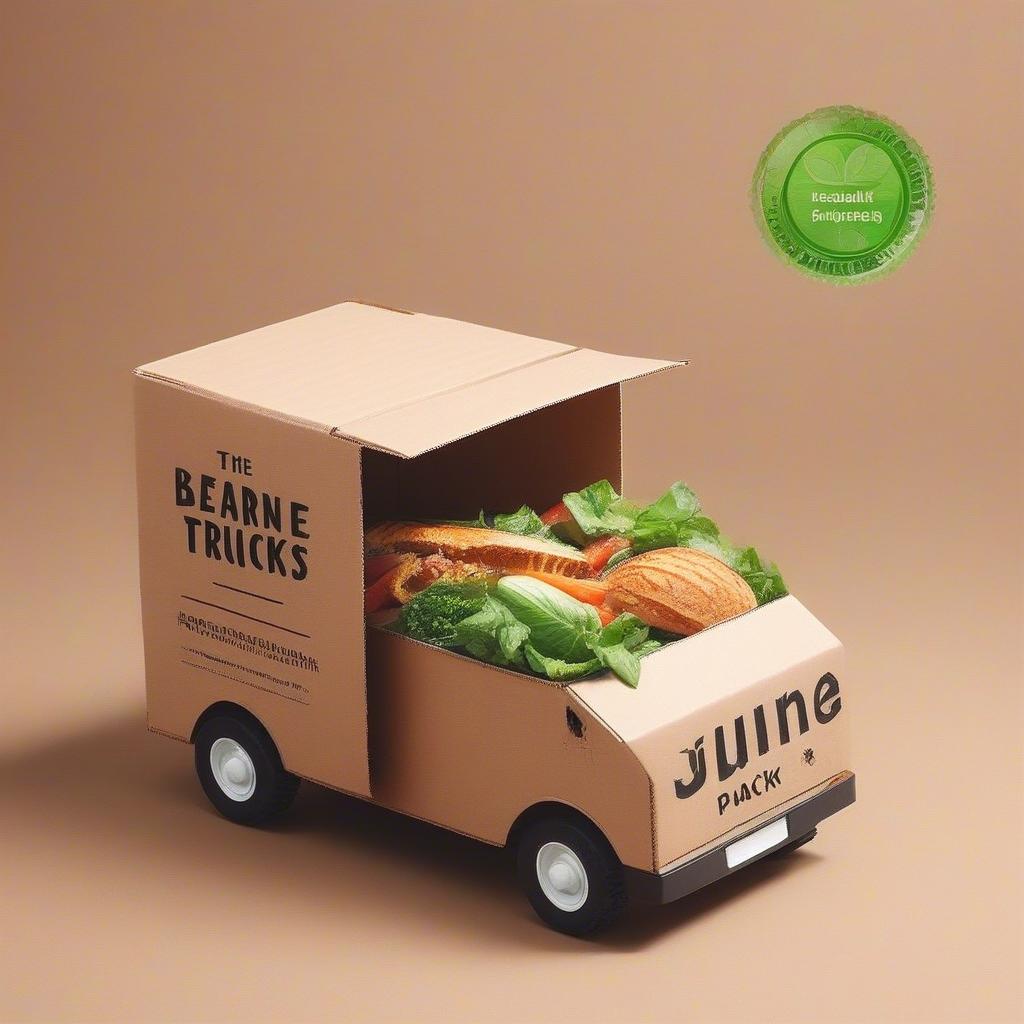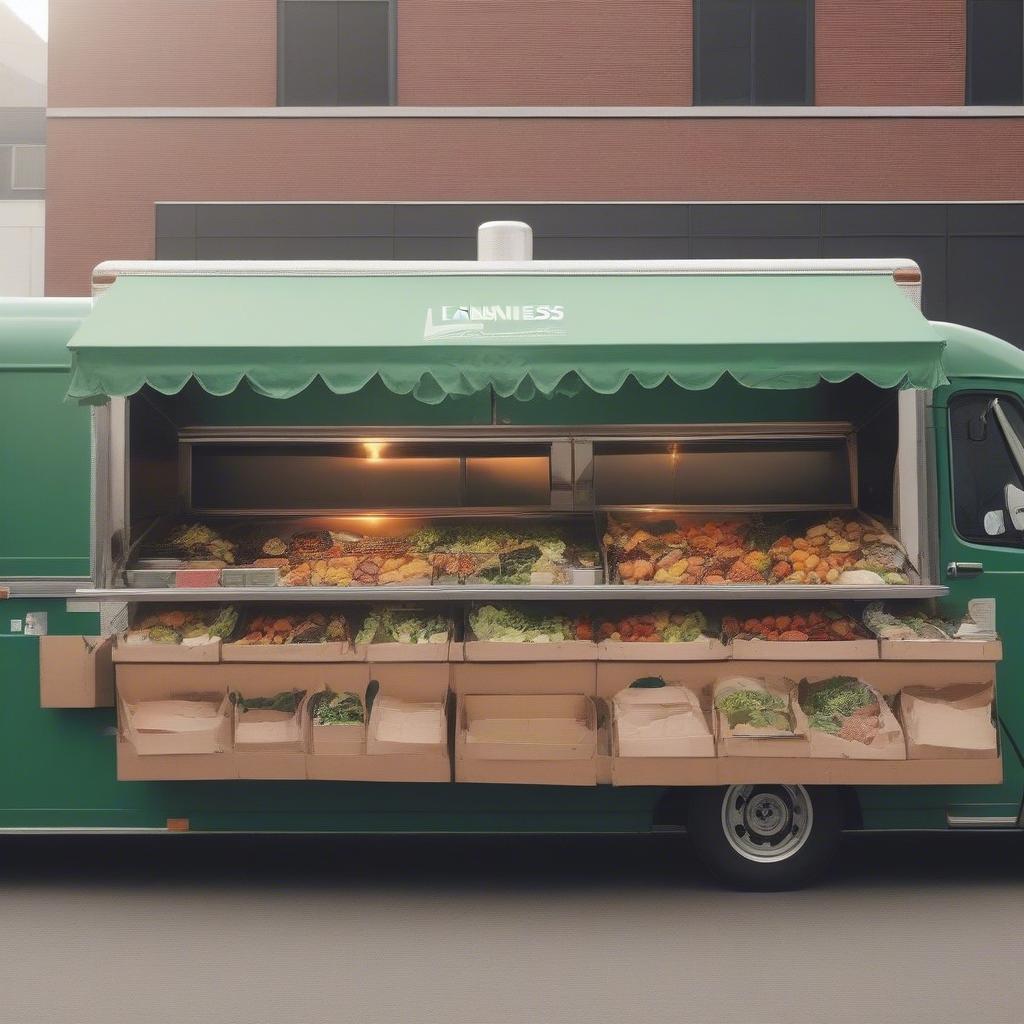
7 Permits Every Food Truck Owner Needs to Know
Embarking on the exciting journey of owning a food truck? That’s fantastic! The aroma of sizzling food, the thrill of mobile entrepreneurship, and the joy of serving happy customers – it’s a dream come true for many. But before you fire up those burners and hit the streets, there’s a crucial aspect you absolutely must master: permits and licenses. Navigating the world of food truck permits might feel like a maze, but it’s essential for your business’s legal operation and longevity. Ignoring these requirements can lead to hefty fines, forced closures, and a whole lot of unnecessary stress. So, let’s dive into the seven essential food truck permits you need to know about, ensuring your delicious dreams don’t get derailed by red tape.
1. Business License: Your Foundation for Legality
Think of a business license as your official permission slip to operate a business within a specific city, county, or state. It’s the foundational permit that legitimizes your entire food truck venture. This isn’t just a piece of paper; it’s your entry ticket to the world of legal entrepreneurship.
Why You Need a Business License
- Legal Operation: Without it, your business is essentially operating outside the law, making you vulnerable to legal action.
- Bank Accounts and Funding: Most banks require a business license to open a business bank account, a necessity for managing your finances. It’s often needed for applying for small business loans as well.
- Tax Compliance: A business license is crucial for reporting taxes and fulfilling your financial obligations to the government.
- Credibility: Having a business license adds credibility to your operation, assuring customers and vendors of your legitimacy.
How to Get a Business License
- Choose Your Business Structure: Decide whether you’ll operate as a sole proprietorship, partnership, LLC, or corporation. This choice impacts your licensing and tax obligations.
- Determine Your Location: Your business license requirements vary based on your food truck’s home base and the areas where you’ll operate. Research local, county, and state regulations.
- Contact the Relevant Authorities: Reach out to your local city hall, county clerk’s office, or state department of revenue to understand their specific requirements.
- Complete the Application: Fill out the application form thoroughly and truthfully. You’ll likely need information about your business name, structure, location, and contact details.
- Pay the Fees: Be prepared to pay an application fee. Costs vary widely depending on location.
- Obtain Your License: Once approved, you’ll receive your business license, usually in the form of a certificate.
- Renew as Required: Most business licenses require annual renewal, so mark your calendar!
Example Scenario
Let’s say you’re planning to operate a gourmet burger food truck in Austin, Texas. You’d need to obtain a business license from the City of Austin, along with any relevant county and state licenses. The application process would involve submitting documentation about your business structure and paying associated fees.
2. Employer Identification Number (EIN): Your Federal Tax ID
If you’re planning to hire any employees or operate as a corporation or partnership, you’ll need an Employer Identification Number (EIN) from the IRS. It’s essentially your business’s social security number, used for federal tax purposes.
Why You Need an EIN
- Hiring Employees: An EIN is mandatory if you plan to hire any employees, even if it’s just one part-time helper.
- Operating as a Corporation or Partnership: If your business is structured as anything other than a sole proprietorship, you will need an EIN.
- Opening a Business Bank Account: Many banks will require an EIN to open a business bank account.
- Tax Purposes: The EIN is essential for federal tax filing, regardless of whether you hire employees.
How to Get an EIN
- Online Application: The easiest and fastest way is to apply online through the IRS website (irs.gov).
- Provide Required Information: You’ll need to provide your business name, address, type of business, and the name of the principal officer or owner.
- Submit and Obtain Your EIN: After completing the online application, you’ll receive your EIN immediately. It’s a free service.
- Keep it Safe: Store your EIN safely, as you’ll need it for various business activities, like tax filings and opening bank accounts.
Example Scenario
Suppose you’re launching a taco truck in Los Angeles, California, and plan to hire two part-time cooks. You will need to apply for an EIN before you can legally hire anyone. You’ll use this number for all tax-related filings and forms that apply to your business.
3. Food Handler’s Permit: Ensuring Food Safety
A food handler’s permit (sometimes called a food handler’s card or certificate) is a certification that proves you and your employees understand safe food handling practices. It’s crucial for protecting public health and avoiding foodborne illness.
Why You Need a Food Handler’s Permit
- Legal Requirement: Most states and cities mandate food handler’s permits for anyone involved in food preparation and service.
- Public Safety: Properly handling food minimizes the risk of food poisoning, protecting your customers and maintaining your reputation.
- Compliance: Health inspectors will expect to see valid food handler’s permits, and non-compliance can lead to fines or even temporary closures.
- Customer Trust: Customers feel more confident patronizing your establishment if they know you and your employees are trained in food safety.
How to Get a Food Handler’s Permit
- Find an Approved Training Program: Look for accredited online or in-person courses that meet your local health department standards.
- Complete the Training: Participate in the training program, covering topics like proper food storage, cooking temperatures, hygiene, and cleaning protocols.
- Pass the Exam: Upon completion, you’ll typically need to pass an exam demonstrating your understanding of the material.
- Receive Your Permit: Once you pass the exam, you’ll receive your food handler’s permit or certificate, which is usually valid for a specific period.
- Renew as Necessary: Food handler’s permits typically need to be renewed after a certain period, often every two or three years.
Example Scenario
Imagine opening a Thai street food truck in Denver, Colorado. You and anyone who handles food in your truck, from the chefs to the cashiers who might sometimes serve food, would need a food handler’s permit. These are typically obtained by completing an approved food safety course and passing an examination, often by a local provider.
4. Mobile Food Vendor Permit: Permission to Operate on Wheels
A mobile food vendor permit is a crucial permit that specifically authorizes you to operate your food truck in your chosen location. It’s not just about selling food; it’s about the legality of doing so from a mobile unit.
Why You Need a Mobile Food Vendor Permit
- Legal Operation on Wheels: This permit specifically grants you the right to operate a mobile food business in a particular jurisdiction.
- Compliance with Regulations: It ensures your business complies with local health, safety, and zoning regulations for mobile vendors.
- Authorized Locations: The permit often dictates where you’re allowed to operate your food truck, preventing you from setting up shop in prohibited areas.
- Avoid Penalties: Operating without this permit can lead to fines, penalties, or even the temporary shutdown of your business.
How to Get a Mobile Food Vendor Permit
- Research Local Regulations: Contact your local city hall, county health department, or business licensing office to identify the specific requirements for mobile food vendors.
- Complete the Application: Fill out the application accurately and provide necessary documents, which may include a detailed plan of your truck, your proposed routes, and your food safety procedures.
- Undergo Inspections: Your truck may need to undergo a health inspection to ensure compliance with food safety standards. This often includes proper equipment like refrigeration, food storage, and a three-compartment sink.
- Pay the Fees: Submit the required application fees, which vary depending on the location and type of permit.
- Obtain Your Permit: Once approved, you will receive your mobile food vendor permit, which typically needs to be displayed in your truck.
- Renewal: Be aware of the renewal periods and conditions to maintain continuous operation.
Example Scenario
If you decide to launch a gourmet grilled cheese food truck in Portland, Oregon, you would need a mobile food vendor permit from the city. This would require your food truck to pass a health inspection that verifies you comply with health and safety requirements. This permit, alongside your business and food handlers permits, would be essential to your daily operations.
5. Seller’s Permit (Sales Tax Permit): Collecting and Remitting Sales Tax
A seller’s permit (sometimes referred to as a sales tax permit or sales and use tax permit) is a permit that allows you to collect sales tax on the products you sell. This permit ensures that you are legally collecting and remitting sales tax to the appropriate state and local authorities.
Why You Need a Seller’s Permit
- Legal Compliance: It’s your legal obligation to collect and remit sales tax on applicable items.
- Tax Collection Authority: This permit grants you the legal authority to collect sales tax from your customers.
- Avoid Penalties and Fines: Failure to collect and remit sales tax can result in substantial penalties and fines from tax authorities.
- Proper Accounting: Having a seller’s permit helps you track your sales tax liabilities and fulfill your tax obligations.
How to Get a Seller’s Permit
- Identify Your Taxing Authority: Determine the state and local agencies that require you to obtain a seller’s permit. This is usually the state department of revenue or taxation.
- Complete the Application: Fill out the application form online, via mail or in person, including details about your business, location, and sales activities.
- Pay the Fees: Some jurisdictions require a fee for obtaining a seller’s permit. These fees vary by state and locality.
- Receive Your Permit: Once approved, you will receive your seller’s permit, which often comes with detailed instructions on collecting and remitting sales tax.
- Comply with Reporting Requirements: Be prepared to file regular sales tax returns, typically monthly, quarterly, or annually, based on your sales volume and the jurisdiction’s rules.
Example Scenario
If you’re operating a dessert food truck in Miami, Florida, you will need to get a seller’s permit from the Florida Department of Revenue. You’ll collect sales tax on every cupcake or ice cream you sell, and regularly send the tax you have collected, according to the schedule stipulated by Florida Tax regulations.
6. Fire Safety Permit: Protecting Against Fire Hazards
A fire safety permit is often required to operate a food truck, especially one that uses open flames, propane, or other heat sources. This permit ensures your truck is compliant with fire safety regulations.
Why You Need a Fire Safety Permit
- Safety Compliance: Ensures your truck meets safety standards to prevent and manage fire hazards.
- Legal Operation: Many jurisdictions require a fire safety permit for mobile food vendors, and failure to have one can lead to fines and penalties.
- Insurance: Your insurance provider might require a fire safety permit as a condition of your coverage.
- Protecting Lives and Property: Minimizes fire risks and ensures the safety of your employees, customers, and the public.
How to Get a Fire Safety Permit
- Contact Your Local Fire Department: Reach out to your local fire department or fire marshal’s office to understand the specific requirements for mobile food vendors.
- Undergo Inspection: Your food truck will need to undergo a fire safety inspection, which involves checking your fire suppression system, fire extinguishers, and any other safety equipment.
- Provide Documentation: Submit relevant documentation related to your fire prevention equipment and your gas installation, if applicable.
- Pay Fees: If applicable, pay the permit fee which varies based on your location.
- Obtain your Permit: Upon passing the inspection and payment of necessary fees, you’ll receive your fire safety permit, which you need to display in your truck.
- Maintain Equipment: Regularly inspect and maintain your fire safety equipment to ensure it functions correctly.
Example Scenario
Imagine running a pizza food truck with a wood-fired oven in Seattle, Washington. Before you serve your first pie, your local fire department will need to inspect your truck for compliance, and you would likely require a fire safety permit to demonstrate the installation of the wood-burning oven is compliant with fire safety standards.
7. Health Department Permit: Ensuring Sanitary Operations
A health department permit is necessary to operate any food business, and mobile food trucks are no exception. This permit ensures that your food truck meets all health and safety standards and is fit for serving the public.
Why You Need a Health Department Permit
- Safe Food Handling Practices: Demonstrates that your truck operates under safe and sanitary conditions.
- Legal Compliance: Ensures your compliance with public health regulations specific to the food industry.
- Public Trust: It provides your customers with the assurance that you operate a safe and sanitary business, thus enhancing customer confidence.
- Avoid Legal Penalties: Operating without a health permit can result in fines and potential business closures.
How to Get a Health Department Permit
- Contact Your Local Health Department: Reach out to your local health department to understand all the specific requirements for food trucks.
- Submit Application: Complete the necessary application, providing all required information about your menu, truck layout, and equipment.
- Undergo Inspection: Your truck will need to pass a health inspection to ensure it meets all requirements, such as proper refrigeration, handwashing facilities, and food storage practices.
- Pay Fees: Some jurisdictions require an application fee, which varies by location and the size of the operation.
- Obtain Your Permit: Upon passing the inspection and paying the necessary fees, you’ll be issued a health permit, which usually needs to be prominently displayed.
- Maintain Compliance: Regularly comply with health regulations, ensuring your truck is clean and safe for the public.
Example Scenario
Suppose you’re planning on launching a vegan food truck in San Francisco, California. A health department permit will be one of your most critical permits. Before you can start selling your vegan fare, you’ll have to pass the inspection from your local health department to ensure you’re adhering to all local regulations and guidelines.
Learn Business: Your Partner in Navigating the Permit Maze
The world of permits can be overwhelming, but you don’t have to navigate it alone. Learn Business understands the unique challenges faced by small business owners, especially those in the food truck industry. We offer tailored guidance and templates to simplify the process of obtaining the necessary permits and licenses.
How Learn Business Supports You
- Guidance and Support: We provide personalized guidance to help you understand the specific permit requirements in your area, saving you valuable time and effort.
- Ready-Made Templates: Access ready-made templates for applications, business plans, and other crucial documents, ensuring you submit complete and accurate forms.
- Expert Advice: Get advice from experienced professionals who understand the complexities of starting and running a successful food truck business.
- Simplified Processes: Our tools and resources are designed to simplify the permit process, reducing the stress and confusion involved.
- Time Saving Resources: Spend less time on paperwork and more time focused on what you love – creating amazing food and serving happy customers.
- Tailored to the Food Truck Industry: Our offerings are customized for the unique needs of food truck businesses, ensuring you get the precise support you need.
Navigating the world of permits and startup compliance might feel daunting, but by breaking it down into these seven key areas and utilizing resources like Learn Business, you can make the journey manageable and less stressful. Remember, these food truck permits are not just obstacles, they are the foundation of a legitimate, safe, and successful food truck business. Invest the time and effort upfront to ensure your business operates legally and ethically, setting the stage for a long and prosperous journey on wheels. By understanding these licenses needed, you’re well on your way to operating a thriving and fully compliant food truck, serving up happiness one delicious dish at a time.



Leave a Reply